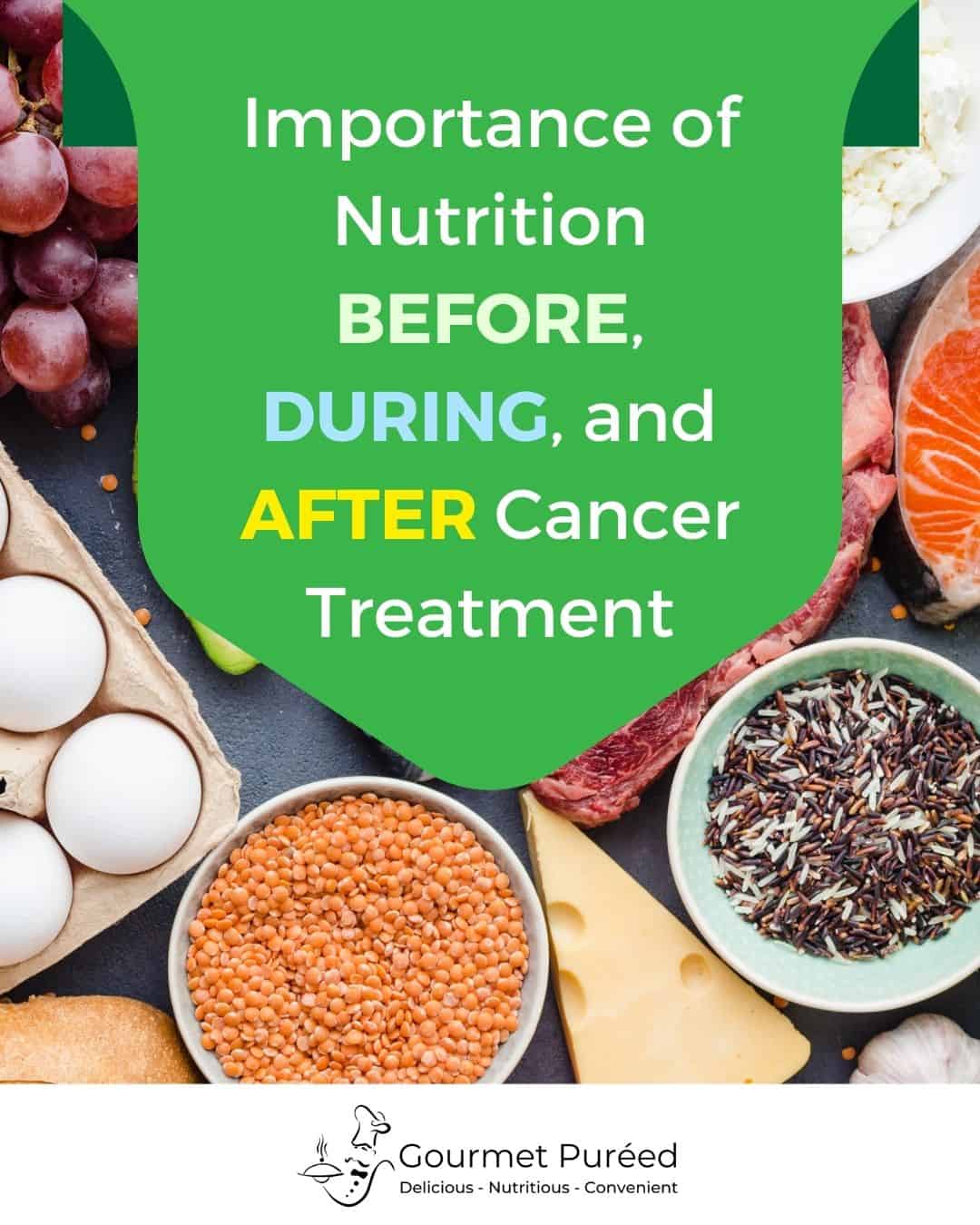Importance of Nutrition Before, During, and After Cancer Treatment
Nutrition is a critical aspect of our body’s performance. Despite its significance, it is frequently neglected, dismissed, or taken for granted. The nutritional requirements of each person vary and are influenced by variables such as age, level of activity, and medical condition, among others. Cancer is a disease that brings about numerous alterations in a person’s life. Cancer patients can alleviate side effects and enhance their overall prognosis by ensuring adequate nutrition during pre-treatment, treatment, and post-treatment periods.
Nutrition Before Treatment
The unpredictability of side effects and changes in eating habits during and after cancer treatment makes it difficult to know what to expect. However, maintaining a balanced and nutritious diet and weight before treatment can provide several benefits. It helps boost strength, reduce the risk of infections, mitigate potential side effects, and speed up recovery. Eating well before the start of treatment sets a solid foundation for a healthier journey through and after cancer treatment.
Nutrition During Treatment
Cancer and treatment can impact nutrient tolerance and utilization. Tumors in the stomach, intestines, or head and neck can affect the body’s use of protein, carbs, and fat. A patient may require a modified diet, such as high-calorie, high-fat options, to counteract nutrient absorption issues and maintain weight and strength.
Lack of appetite and poor appetite are common side effects of cancer and its treatments. Persistent appetite loss can lead to weight loss, malnutrition, weakness, fatigue, and increased vulnerability to infections, hindering a person’s ability to complete cancer treatment. Malnutrition can worsen if the cancer advances.
Anorexia and cachexia are two common causes of malnutrition in cancer patients, with anorexia being the most prevalent. Anorexia is a loss of appetite or interest in food and can arise early in the disease or as the cancer progresses.
Cachexia, also known as wasting syndrome, goes beyond just a loss of appetite, impacting the body’s ability to process proteins, carbohydrates, and fats, resulting in muscle and, potentially, fat loss. Here are some tips for maintaining good nutrition during cancer treatment:
- Focus on getting the proper nutrients. It includes protein, carbohydrates, fats, and water.
- Stay active. Simple activities such as daily walking can help prevent muscle loss and maintain a healthy weight.
- Communicate with your healthcare team about your weight. Regularly discuss your weight with your doctor, as changes can impact your health during treatment. It could indicate inadequate nutrition, and your healthcare team can work with a food professional to address it.
Nutrition After Treatment
For cancer survivors, recovery doesn’t stop after treatment ends. Many experience lingering side effects that can last months. Maintaining a nutritious diet is crucial during this period, focusing on smaller, more frequent meals and increasing calorie, protein, and fluid intake. Slowly reintegrating foods that were not tolerated during treatment is recommended.
As the body continues to heal, it’s essential to have a well-rounded diet with a mix of whole grains, vitamins, minerals, lean protein, and unsaturated fats to promote overall health and well-being.
The Bottom Line
Nutrition plays a crucial role in a patient’s cancer journey, from the moment of diagnosis through treatment and beyond. Making dietary choices that are both tasty and nutritionally beneficial can make a significant impact on overall well-being, both during and after treatment. If finding the time and energy to prepare healthy meals is challenging, consider reaching out to home-delivery meal services at Gourmet Pureed.
Our delicious and nutritionally tailored meals can help meet specific dietary requirements and make it easier to maintain a healthy diet throughout the cancer journey. Gourmet Pureed is the ideal solution for cancer patients and survivors looking to maintain their nutritional needs during recovery.
Meta Description
Discover the importance of nutrition in the cancer journey before, during, and after cancer treatment. Learn how to maintain a healthy diet!




